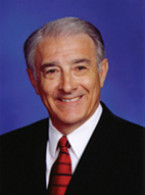Biblical integration is more than reading a few Bible verses, asking for prayer requests, praying, and perhaps completing a one- to two-minute devotion, followed by the studying of a subject without any further mention of God’s ownership or Jesus Christ’s role in the subject content discussed.
The application of biblical principles must extend beyond Bible class, chapel, and school revivals. Bible truths, whether presented in the form of general principles, specific principles, external truths, internal truths, conceptualized truths, or factual truths, should influence the curriculum and pedagogy from the perspective of a theistic worldview.
The Christian school’s educational foundation is biblical truth applied by Christian teachers according to biblical standards of interpretation. Applying truth to all subject areas is the Christian school educator’s duty. But saying truth should be applied, and actually applying truth to subject content areas are two different matters. Applied biblical truth requires time, study of the Bible, and a knowledge of the subject taught. Only then can a Christian school educator apply a Christian philosophy of education to academia. This process takes time and study. It also takes a commitment to a worldview that accepts Jesus Christ as the source of all truth.
This online course will help you move beyond theory to application, for it is application that puts academics in the right perspective to the sacred truths communicated in the Bible. What good is knowledge if it is not interpreted and applied the way God intended? Bible truths unite with academic knowledge to manifest the preeminence of Christ.
The value of this course is found in the “evaluation activities,” each of which is designed to help you to create or strengthen you biblical worldview of education, to think about the relationship of Bible truths to academia, and to develop a Christian philosophy of reading, language, science, math, and history.
In essence, you will be asked to think in conceptual terms. It may take you more time to complete some of the activities than it does others, but this is often necessary to bring together the parts to make a whole according to God’s design.
Fifteen (15) contact hours will be awarded for completing this course.
 |
About the Instructor:
Dr. Charles Walker is the Executive Director of the Tennessee Association of Christian Schools. He also serves as the President of Take Tenn Publications. For 22 years, Dr. Walker served as the editor of the Journal for Christian Educators. He has authored several staff development manuals, school improvement materials, and is the co-author of Study Right, a popular study skills curriculum written for Christian school students in grades 4-12. He has written numerous educational articles for national and state Christian association publications. A well-respected educator in the educational community, he currently serves as the chair of the Advisory Council for Non-Public Schools to the Tennessee State Commissioner of Education.
Dr. Walker began his professional career in 1963 as a junior high and senior high school science teacher. Afterwards, he served as a principal and superintendent at three Oklahoma public schools and then as the principal of Trinity Christian School in Chattanooga, Tennessee. He assumed the position of Executive Director of Tennessee Association of Christian Schools in 1977. He holds a Bachelor of Science degree and a Master of Teaching degree from Southwestern State College in Weatherford, Oklahoma, and a Professional Certificate in Educational Administration from The University of Oklahoma. He received honorary doctorate degrees from Pensacola Christian College and Midwestern Baptist College.
|
